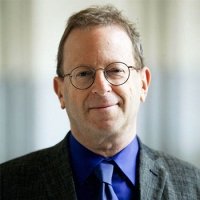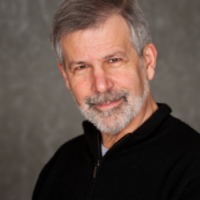The Left: Does It Have a Future? Global Perspectives
Does the left have a future? This was the question posed by US Studies during its April 25 panel discussion of the prospects for progressive movements around the world. Drawing on their own experiences and research, panelists from Oceana, Europe, and North America provided the audience with a comparative historical perspective, concluding that the left must adapt in the face of new and persistent challenges in order to maintain its relevancy in global political discourse.
Steven Kramer opened his comments by highlighting the three distinct left movements in Western history. Beginning with the democratic “rights of man” movements of the American and French revolutions, he traced the history of the left through to the struggles for political and social equality in the wake of the Industrial Revolution. He then moved on to the New Left of the 1960s, which led the struggles for racial and gender equality, and created awareness of environmental degradation and sexual diversity. Kramer went on to explain how the economic solutions put in place by social democratic governments in Europe never envisioned the economic rise of Asia, Africa, and South America. This reality, he said, has now put the welfare state on the defensive as nations strive to remain competitive in the global economy. Looking to the future, Kramer concluded that the left must realize that “economic and political powers are fused.” In this new reality, a paradigm shift may be necessary for understanding “how wealth is formulated and not just distributed in a way that will benefit all elements of society.”
American historian Michael Kazin addressed the topic of the American Left in his remarks. Until the 1930s, leftists were understood to be European, with Americans considering themselves as “radicals” and “revolutionaries.” Today, however, the term “left” has expanded to include widely disparate, often unrelated, groups. Although large campaigns have been mounted in support of various causes, leftist movements in the U.S. since the 1970s have lacked the united purpose, vision, and momentum of previous efforts. In Kazin’s opinion, the American left’s most enduring contribution has been a transformation of American moral culture by “setting forth bold visions of a different present and a different future.” This has resulted in equal opportunity for women and minorities, as well as an appreciation of multiculturalism. The cultural activism of individuals such as Harriet Beecher Stowe and John Steinbeck, he said, has had a more lasting impact than any leftist politicians in American history. For Kazin, the current era will require the left to defend the gains of the past while setting forth a common vision which includes the majority of Americans.
Wilson Center Australia Scholar, Christopher Barrett, began his remarks by arguing that it is institutions and public discourse, not individual leaders or parties, which shape politics. In his experience as an advisor to Labor politicians in Australia, Barrett discovered that, “[i]nstitutions also decide the organizational power of parties and political movements.” These institutions, he said, can include the electoral system, campaign finance, and organized labor. Barrett then outlined three ways in which this discourse is produced and reproduced, leaving it to the audience to decide how well the left and right manage such considerations. Politicians, he said, require resources and creativity to form a current and appealing message. They must then have the discipline “to ensure one is fighting one’s adversaries and not one’s allies.” Looking to the future, Barrett remarked that the left must continue to develop its message, paying close attention to the role of institutions and public discourse.
Providing a European perspective, Roberto Toscano started off by posing two simple questions about the current state of the left: “What went wrong and what is to be done?” Tackling the historic roots of the left’s current “disarray,” Toscano started by pointing to the fall of Soviet communism, which he claimed gave the right and opportunity to declare the end of the left movement. He also pointed to the 1960s, when capitalism, instead of caving into the leftist demands of the counter-cultural movement, began commercializing sex, drugs, and rock and roll. Toscano argued that the progressive intellectual message of the creative class has slowly lost out to a more permissive right who’s “reality does not match with the rhetoric.” In a post-9/11 world, “the welfare state has been replaced by the security state…in common perception.” Toscano believes that this will require the left to stand up for traditionally “conservative” values of democracy, legality, and freedom of opportunity.
Speakers

Author "Jews, Muslims, and the French Republic" (Cambria: 2023)

Hosted By

History and Public Policy Program
A leader in making key foreign policy records accessible and fostering informed scholarship, analysis, and discussion on international affairs, past and present. Read more
